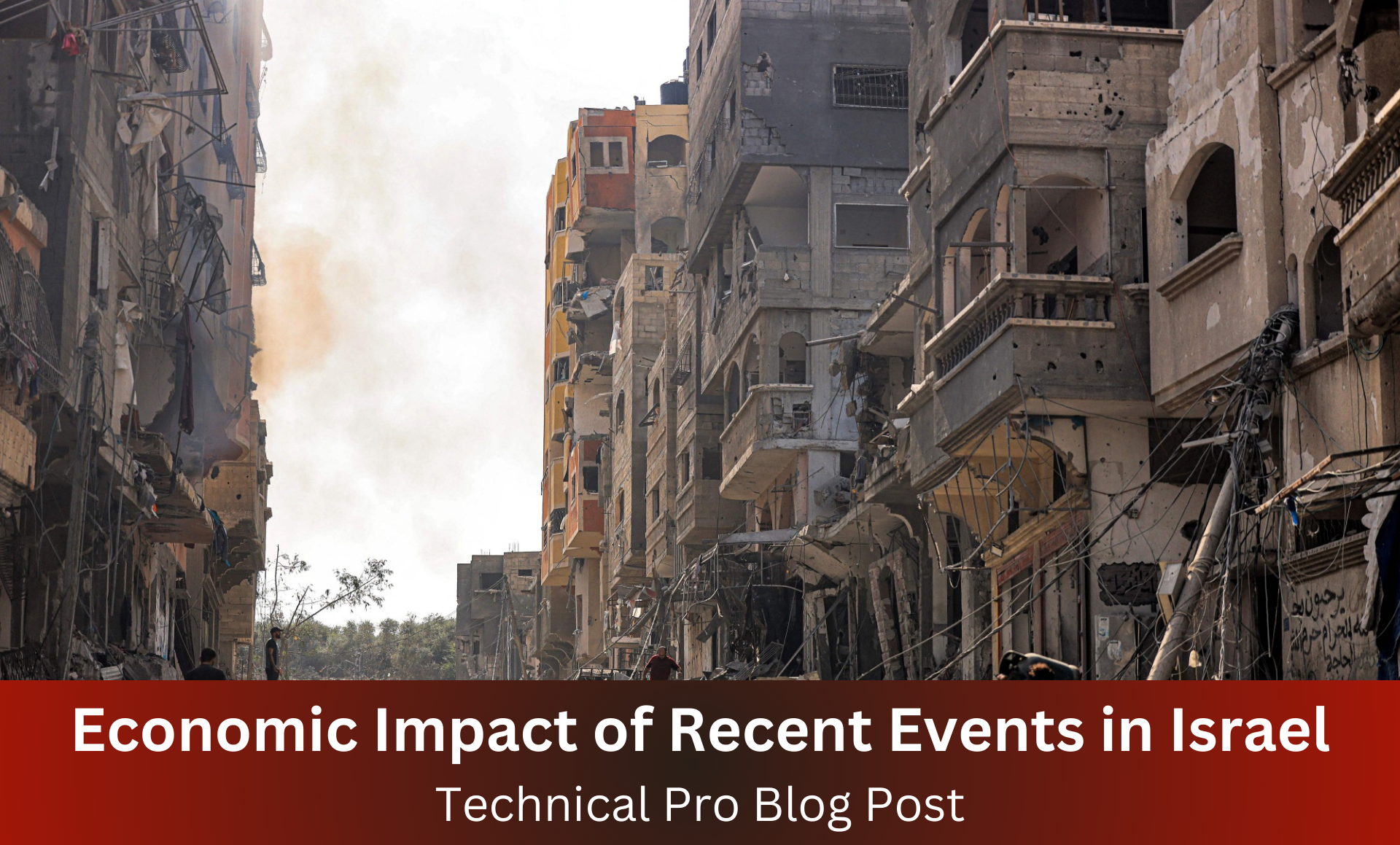Understanding the economic impact of recent events in Israel is crucial for grasping the broader implications on the region’s stability and prosperity. These events have not only affected the day-to-day lives of individuals but also left significant marks on various sectors of the economy. In this article, we will delve deep into the multifaceted economic consequences, examining the immediate repercussions and projecting future outcomes.
Historical Context Events in Israel
To fully comprehend the economic Events in Israel ramifications of recent events, it’s essential to look at Israel’s past economic challenges and resilience. Historically, Israel has faced numerous conflicts and economic sanctions, yet it has consistently shown a robust ability to rebound and grow. Comparing current events to past conflicts, such as the Second Intifada and the Gaza Wars, provides a framework to understand the potential economic trajectory.
Economic Resilience in Historical Conflicts
Israel’s economic resilience is a testament to its strategic economic planning and robust institutional frameworks. During the Second Intifada (2000-2005), Israel faced significant economic challenges, including a steep decline in tourism and foreign investment, coupled with increased military spending. However, through strategic reforms, such as liberalizing the economy, fostering innovation, and expanding international trade, Israel managed to stabilize and eventually experience robust growth.
Lessons from Past Economic Recovery
The recovery from past conflicts offers valuable lessons for the current economic challenges. Key strategies that proved successful included diversifying the economy, investing in technology and innovation, and maintaining strong international alliances. These lessons can inform current policy decisions aimed at mitigating the economic impact of recent events.
Immediate Economic Repercussions Events in Israel
Stock Market Reactions
The stock market often serves as an immediate barometer for economic stability. Following the onset of recent events, there was a noticeable drop in stock prices, particularly in sectors directly impacted by the conflict. Investors, wary of instability, tend to pull out, leading to market volatility. However, historical data suggests that while there may be an initial dip, markets often stabilize as the situation progresses.
Currency Fluctuations Events in Israel
Similarly, the Israeli shekel experienced significant fluctuations. A nation’s currency often reflects its economic health and investor confidence. During periods of conflict, the shekel typically weakens due to increased uncertainty and decreased foreign investment. This volatility can impact everything from import prices to everyday consumer goods, influencing overall economic stability.
Impact on Tourism Events in Israel
Decline in Tourist Arrivals
Tourism is one of the sectors most sensitive to geopolitical instability. Israel, known for its historical and cultural sites, saw a sharp decline in tourist arrivals. Travel advisories issued by various countries further exacerbated this decline, leading to substantial financial losses in the tourism sector, including airlines, hotels, and local attractions.
Financial Losses in the Tourism Sector
The financial implications extend beyond just the immediate loss of revenue from tourists. The decline in tourism affects a broad spectrum of related industries, including retail, dining, and transportation. For many local businesses, especially those in tourism-dependent areas, the economic fallout has been severe.
Effects on Local Businesses

Small Businesses and Their Struggles
Small businesses often bear the brunt of economic disruptions. With decreased foot traffic and consumer spending, many small businesses have struggled to stay afloat. The situation is exacerbated by supply chain interruptions, making it difficult for businesses to procure necessary goods.
Large Corporations and Their Responses
In contrast, large corporations have more resources to weather economic storms. Many have implemented contingency plans, such as shifting operations or diversifying supply chains. However, even large companies are not immune to the broader economic climate, facing challenges like reduced consumer demand and increased operational costs.
Agricultural Sector Disruptions Events in Israel
Damage to Crops and Livestock
Agriculture is another sector heavily impacted by the recent events. The physical damage to crops and livestock, whether from direct conflict or logistical disruptions, has led to significant losses. Farmers face challenges in both production and distribution, with many areas reporting substantial decreases in output.
Supply Chain Interruptions Events in Israel
The agricultural sector’s supply chain is particularly vulnerable to disruptions. Transport routes are often unsafe or inaccessible, leading to delays and increased costs. These interruptions not only affect local markets but also have broader implications for food security and export potential.
Changes in Consumer Behavior
Shifts in Spending Patterns
During times of conflict, consumer behavior often shifts dramatically. People tend to prioritize essential goods, leading to increased demand for items like food, medicine, and basic household supplies. Conversely, spending on non-essential goods, such as luxury items and entertainment, typically decreases.
Increased Demand for Certain Goods
This shift in demand can create temporary shortages and drive up prices for essential goods. Retailers may struggle to keep up with the increased demand, leading to further economic strain. Additionally, the psychological impact of conflict often leads to more conservative spending habits, as consumers prioritize savings over discretionary spending.
Government Response (Events in Israel)

Economic Aid and Support Measures
The Israeli government has implemented various economic aid packages to support affected businesses and individuals. These measures include direct financial assistance, tax relief, and low-interest loans. The effectiveness of these interventions will play a crucial role in the speed and sustainability of economic recovery.
Long-Term Recovery Plans
Beyond immediate aid, the government is also focusing on long-term recovery plans. These include investments in infrastructure, education, and technology to stimulate economic growth and resilience. The goal is to build a more robust economy that can better withstand future shocks.
Impact on the Labor Market (Events in Israel)
Job Losses and Unemployment Rates
One of the most direct economic impacts of the recent events is on the labor market. Many businesses, particularly in affected areas, have had to lay off workers or reduce hours. This has led to a spike in unemployment rates, with certain sectors, such as tourism and retail, being hit the hardest.
Sectors Most Affected
While some sectors face significant job losses, others, such as healthcare and emergency services, have seen increased demand. This dichotomy highlights the uneven economic impact of the conflict, with some areas struggling more than others to adapt and recover.
Real Estate Market Fluctuations
Changes in Property Values
The real estate market has also been affected, with property values in conflict zones experiencing a decline. Uncertainty and instability make it less attractive for buyers and investors, leading to a slump in the market. Conversely, safer areas may see an influx of demand, driving up prices and creating regional disparities.
Shifts in Housing Demand Events in Israel
These changes in property values reflect broader shifts in housing demand. People may choose to relocate to areas perceived as safer, affecting both the rental and sales markets. This movement can have lasting impacts on urban development and housing affordability.
Effects on International Trade
Export and Import Challenges
International trade is another area significantly impacted by the recent events. Export and import activities face challenges due to disrupted transport routes, increased security measures, and shifting political alliances. These disruptions can lead to delays, increased costs, and reduced trade volumes.
Trade Relations with Other Countries
The economic impact is not limited to physical goods. Israel’s trade relations with other countries can also be affected by geopolitical tensions. Changes in trade policies, sanctions, or shifts in alliances can further complicate the economic landscape.
Technology and Innovation Sector
Disruption in Tech Startups
Israel, known as the “Startup Nation,” has a vibrant technology and innovation sector. However, recent events have disrupted many tech startups, from operational challenges to funding shortages. These disruptions can slow down innovation and delay the development of new technologies.
Impact on Innovation and R&D
Research and development activities are particularly vulnerable to economic instability Events in Israel. Funding cuts, logistical challenges, and shifts in priorities can hamper progress in critical areas. The long-term impact on Israel’s tech sector will depend on the ability to navigate these challenges and sustain innovation.
Foreign Investment Impact
Changes in Investor Confidence
Foreign investment is crucial for economic growth, and recent events have affected investor confidence. While some investors may adopt a wait-and-see approach, others might withdraw entirely, leading to decreased foreign direct investment (FDI).
Short-Term vs. Long-Term Perspectives
Events in Israel The impact on foreign investment varies between short-term and long-term perspectives. In the short term, volatility and uncertainty may deter investment. However, long-term investors might see opportunities for growth and recovery, depending on the stability of the situation and the effectiveness of economic policies.
Economic Forecast and Future Projections
Predictions for Economic Recovery
Economic forecasts for Israel vary, with some experts predicting a slow recovery while others are more optimistic. The speed and sustainability of recovery will depend on various factors, including government policies, international support, and the resilience of local businesses.
Potential Long-Term Impacts
The long-term economic impacts of recent events are still uncertain. Potential outcomes range from a prolonged economic downturn to a rapid recovery fueled by innovation and investment. The trajectory will depend on how well Israel can navigate the current challenges and capitalize on opportunities for growth.
Conclusion
The recent events in Israel have had profound economic impacts across various sectors. From immediate repercussions in the stock market and currency fluctuations to long-term challenges in tourism, local businesses, agriculture, and beyond, the Events in Israel economic landscape is complex and multifaceted. The government’s response, coupled with the resilience of the Israeli people, will play a crucial role in shaping the future. Understanding these dynamics is essential for anticipating future trends and supporting sustainable economic recovery.
For a detailed analysis of the current security situation in Israel and Gaza, visit this article.
FAQs
How have recent events affected Israel’s GDP?
Recent events have led to a decline in Israel’s GDP, primarily due to disruptions in key sectors such as tourism, agriculture, and local businesses. The extent of the impact varies, but overall economic activity has slowed down, reflecting decreased consumer spending and business investments.
What sectors are most impacted by the recent events in Israel?
The most impacted sectors include tourism, local businesses (especially small enterprises), agriculture, and real estate. Additionally, the technology and innovation sector has faced disruptions, affecting startups and research activities.
How is the Israeli government supporting businesses affected by the recent events?
The Events in Israel government has implemented various support measures, including direct financial assistance, tax relief, and low-interest loans. Long-term recovery plans are also in place, focusing on infrastructure, education, and technology investments to stimulate economic growth.
What are the long-term economic implications of these events?
Long-term implications could include shifts in housing demand, changes in consumer behavior, and potential challenges in international trade and foreign investment. The overall economic trajectory will depend on the effectiveness of recovery measures and the ability to sustain innovation and growth Events in Israel.
How has the international community responded to Israel’s economic situation?
The international community’s response has been mixed, Events in Israel with some countries offering support and others expressing concerns about the geopolitical implications. Trade relations and foreign investment patterns are likely to be influenced by the broader geopolitical context and the perceived stability of the region.
